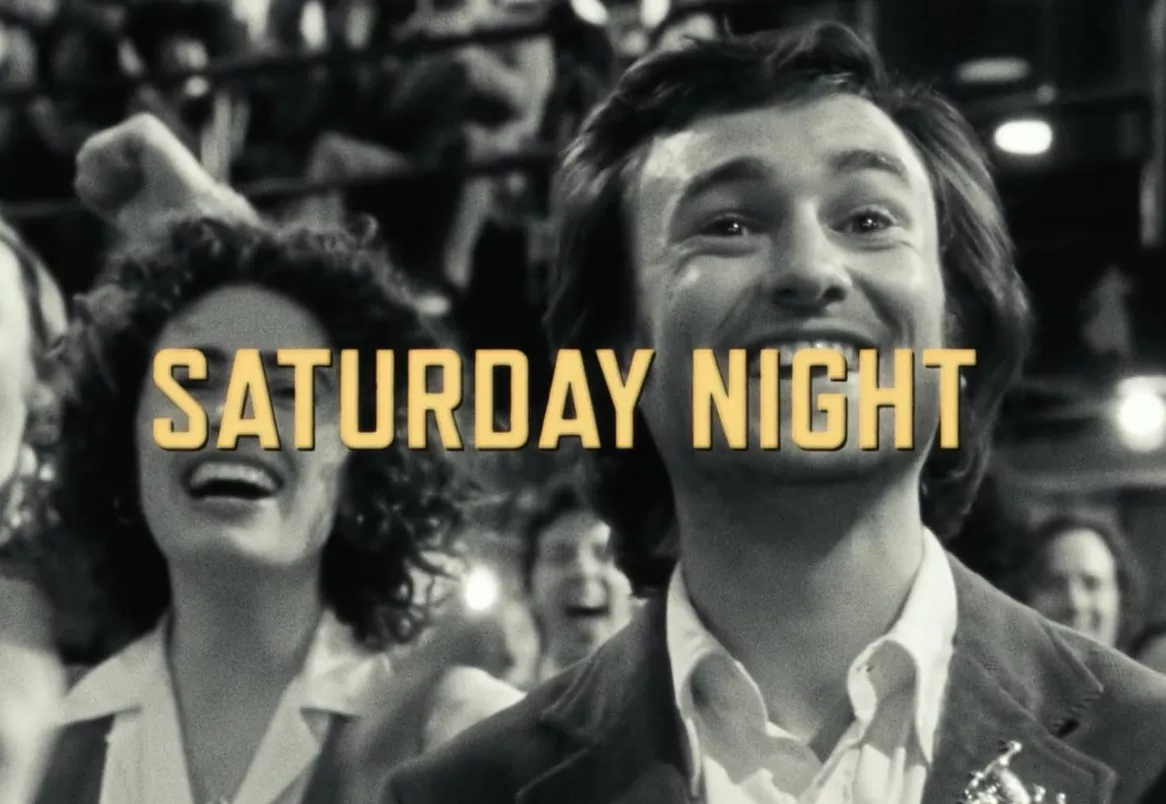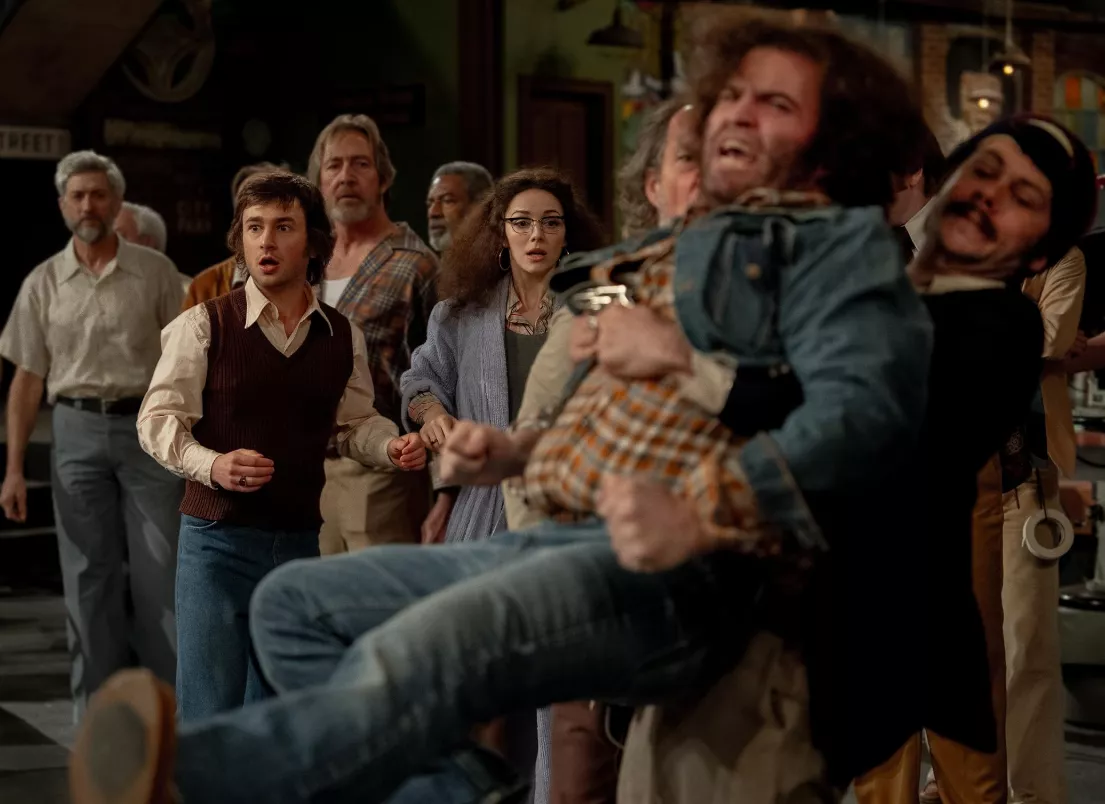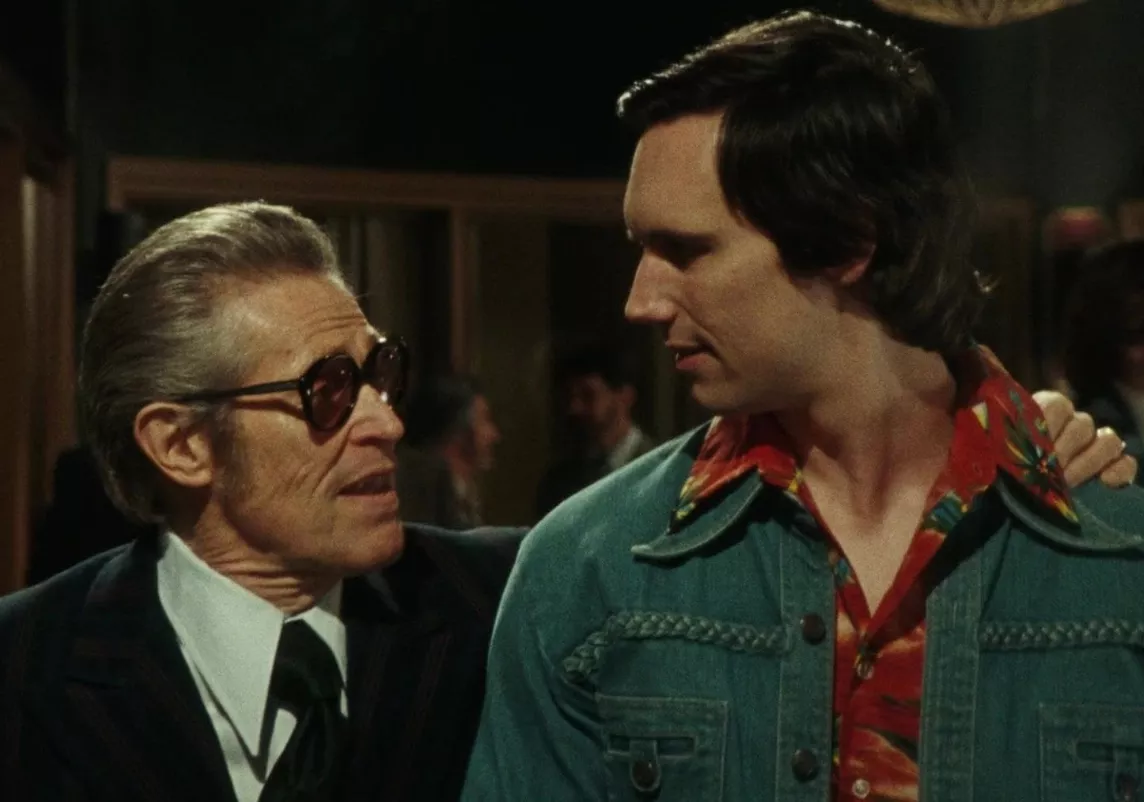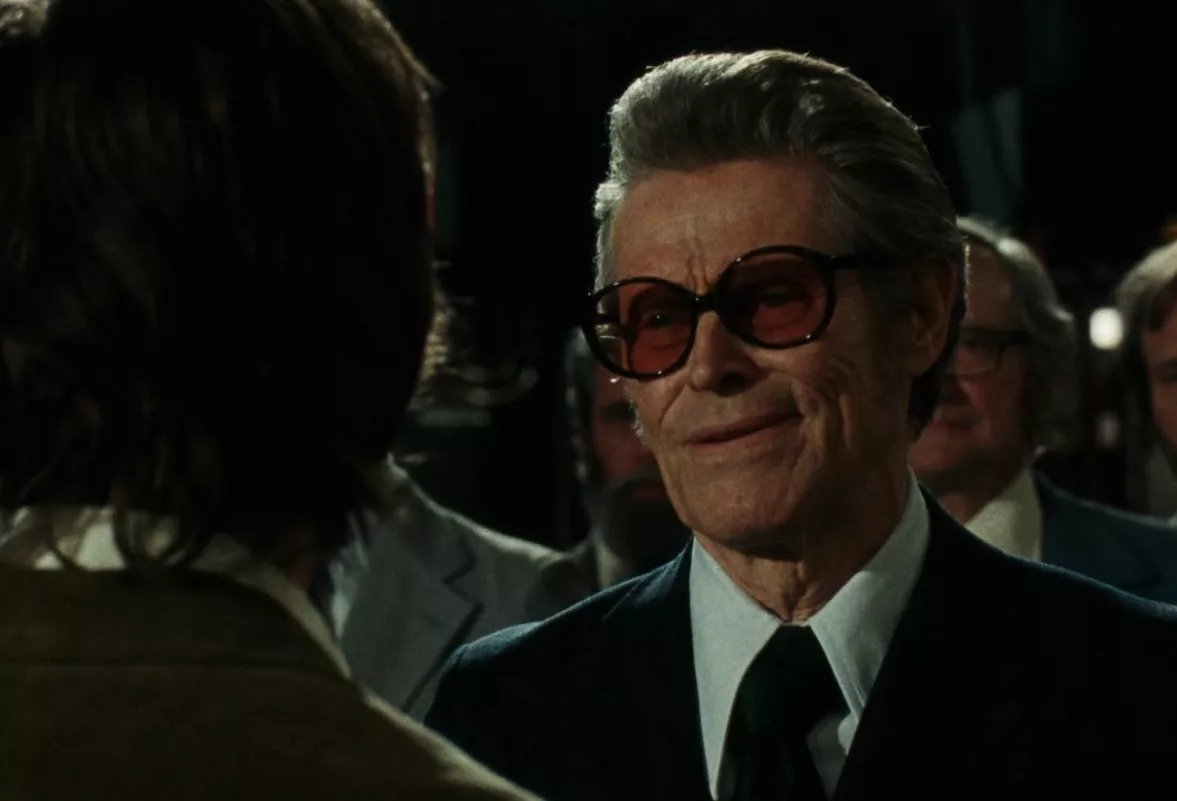
"Art is but a measure of sacrifice and tears."
Who is Lorne Michaels and what did his name mean in the entertainment industry? You probably have never heard about him, but this Canadian producer and writer is one of the most influential ones in TV history. Saturday Night, the new comedy drama—which also serves as an origin story—directed by Jason Reitman premiered in the Mar del Plata International Film Festival in Argentina. This film is the living proof of the immense power big ideas hold, but it also specially highlights the positive and unexpected impact that taking risks can have in an industry so intensely shaken such as TV.
The movie submerges us in the minutes prior to the first episode of Saturday Night Live on that fatal night of October 11, 1975. Years later, thanks to its both innovative and chaotic format, this show would inspire the creation of several ones along the same lines as, for example, Videomatch, a ridiculous early 90s Argentine show hosted by renowned Marcelo Tinelli, and That ’70s Show later in the same decade in the United States. Improvisation turned out to be one of the key elements that made Saturday Night Live the strongest entertainment foundation of all since the mid-70s.

Saturday Night Live's first episode had a catastrophic pre-production. Just like Coppola with Apocalypse Now (1979), Proyas with The Crow (1994) and Herzog with Fitzcarraldo (1982), Michaels was able to create everything he had imagined, which is an accomplishment that can easily make him part of this exclusive group. In this film, we see a rookie assistant that accidentally gets high less than an hour before the show's recording, performers that get into a fight in the middle of rehearsals and even a board of disgusting media businessmen that put pressure on Lorne and his team in different ways to try to make him dismiss the idea of conceiving his ambitious show. This "dramedia"—which at times gets darker with certain suspense hints—shows what it really means to give everything one has for artistic creation with a light tone.
The show, which helped boost the career of several figures such as Dan Aykroyd, Will Ferrell, Eddie Murphy, Mike Myers, Ben Stiller, Adam Sandler and Robert Downey Jr., is still the home of many young talents that know the potential—and vast audience—they can reach by merely showcasing their performing skills for two or three minutes on a Saturday at midnight in New York's 30 Rockefeller Plaza's mythic eighth floor. Even though this ritual is normalized nowadays and even fits perfectly with the idea of "politically incorrect" as ironically the most correct thing, it was questioned like everything "new" at the beginning. The 70s were a revolutionary time, with substantial changes and battles. This whole feeling is represented in the movie, even though it's lightly exposed. Reitman's intention wasn't to produce a political pamphlet but to subtly present his posture about the subject.

Unlike other big origin stories, Saturday Night doesn't focus on showing the protagonist's beginnings, who would be Michaels as Radio CBC's (Canadian Broadcasting Corporation) writer and host. The film also doesn't shelter in boring dramatic cliches focused on the past of each person involved in the show—which, at its beginning, had a lot of people doing many things everywhere all the time. Actually, the film immediately places the focus in the moments prior to the dawn of a new TV era. Why would we want to know what the creator was thinking two years before when, instead, we can perfectly understand where he comes from, what motivates him and his aspirations with some looks, certain character gestures and dialogues with his team? All this masterfully orchestrated by Reitman.
As with any chaotic creation, there are obstacles. There's always going to be someone trying to give us our heavy dose of low self-esteem, convince us of the media tragedy our work can turn into or boycott us in every possible way. As for the movie, the very fears of the people involved are the ones doing the boycotting; they seem to ignore what they were getting into and the incorporation of the eccentric character played by Willem Dafoe also creates barriers to almost everything. What if Michaels was looking to inspire these artists to improvise and understand with unconventional methods that not everything has to be perfectly calculated to entertain? The answer is not completely clear since Lorne's journey in this hour prior to the start of the show's recording questions it every two minutes.

Music, parody, improvisation and creation. The TV experience was never the same after the midnight of October 11, 1975 in which Michaels, with a group of rebels, found the recipe for success without the large budgets and the sense of absolute control that Hollywood, New York and almost all huge production companies have nowadays. Was the lesson learned? Resolving uncertainty is far from being simple, but the inspiration derived from knowing that big ideas always prevail is the essence of one of the best movies of 2024.
Posted on DECEMBER 2, 2024, 17:23 PM | UTC-GMT -3
If you liked this article remember to give it a 👉 LIKE, put it in your FAVORITES, COMMENT 🗣️ , and FOLLOW ME for more movie and series content 📽






Share your thoughts!
Be the first to start the conversation.